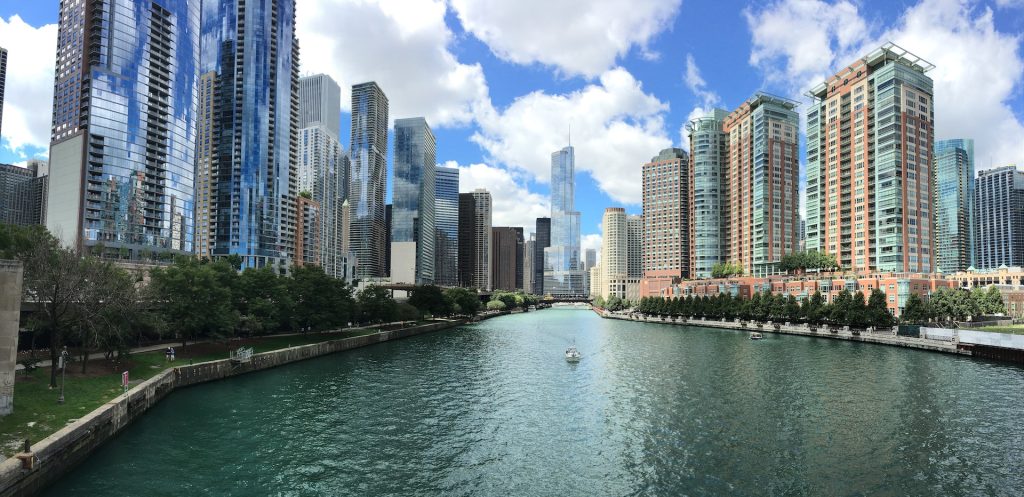
Chicago is now accepting applications from domestic workers for one-time, $500 relief payments, which will be awarded to up to 7,000 household employees who meet eligibility criteria.
The city of Chicago recently announced that domestic workers are now eligible to apply for the Chicago Resiliency Fund 2.0, which will provide one-time, $500 relief payments to populations that had difficulties accessing and qualifying for federal relief payments during the COVID-19 pandemic. Chicago plans to award relief payments to up to 7,000 domestic workers.
“Care workers are the backbone of our economy – they make all other work possible. As a daughter of a domestic worker, I know the challenges they face day in and day out to support other families while trying to keep their own afloat,” said Chicago Mayor Lori Lightfoot. “This fund represents the continued commitment from my administration to ensure that our hardest-hit residents, including domestic workers and undocumented residents, get access to recovery funds.”
Eligibility for relief payments
To be eligible, an applicant must be a domestic worker, live in Chicago, be 18 or older, and have a household income at or below 300% of the Federal Poverty Level ($69,090 for a household of three).
The Chicago Resiliency Fund 2.0 is open to all eligible Chicago residents, regardless of legal immigration status. No questions will be asked regarding citizenship or immigration status in the application or verification process. COVID-19 cash assistance is not considered under public charge analysis.
Applicants will be approved on a rolling basis and will need to submit proof of eligibility. Eligible applicants who were living in the United States in 2020 and 2021 and who have not received any previous COVID-19 cash assistance from the State of Illinois’ Welcoming Center COVID-19 Recovery Fund or from the Immigrant Family Support Project will be given priority for this fund. Up to two applications per household will be accepted.
How to submit an application for relief payment
Applications must be submitted online. The application is currently available in English and Spanish. Chinese (Traditional and Simplified), Arabic, and Polish translations are forthcoming. The Department of Family and Support Services (DFSS) has engaged Heartland Human Care Services, YWCA Metropolitan Chicago, and an array of community-based organizations to offer information and application assistance events across the city during the application process.
“While the COVID stimulus payments were a great help for so many during the pandemic, many hard-working residents were left out of this critical resource,” said DFSS Commissioner Brandie Knazze. “The Resiliency Fund 2.0 is designed to help those who had to navigate the pandemic without such resources.”
The term “domestic worker” refers to those who, in the last 12 months, have been paid for household services such as childcare or housekeeping which take place in a private home or residence.
For more information about eligibility and the application, residents should visit chicash.org to review the FAQs, find helpdesk contact information, and find an upcoming information or assistance event in their community.
Domestic workers’ rights in Chicago
In 2020, Mayor Lightfoot launched the Your Home is Someone’s Workplace campaign to bring awareness to the rights of domestic workers. In 2021, Mayor Lightfoot led efforts to expedite domestic workers to the $15/hour minimum wage by August 2021 and passed legislation requiring all domestic workers to have a written contract. In 2022 and 2023, the City has funded direct outreach to domestic workers to equip them with information about their rights and to act as peer leaders in their communities.
About the Chicago Resiliency Fund 2.0
The Chicago Resiliency Fund 2.0 is part of the $1.9B Chicago Recovery Plan bucket of investments and represents a continued commitment from the City of Chicago to center households in the economic recovery from the COVID-19 pandemic. The fund is modeled after the 2020 Chicago Resiliency Fund, which was a public-partner partnership between the City of Chicago, The Resurrection Project, and Open Society Foundation that provided cash assistance to residents excluded from the first federal stimulus payments. The first round of Resiliency Fund 2.0 offered cash assistance payments for caretakers of adults who filed taxes in 2019.






 Get your free:
Get your free: